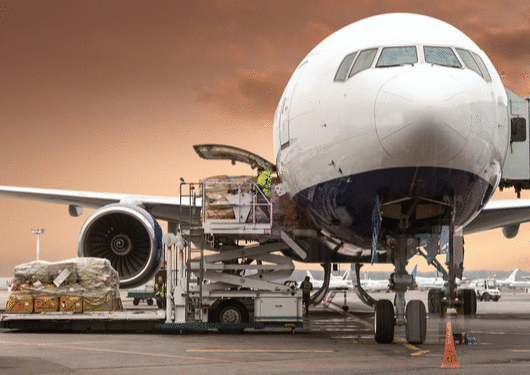
Visit Our Sponsors |
|
|
|
|
|
|
|
|
|
|
|
|
|
|
|
|
|
|
|
|
|
|
|
|
|
|
|
|
|
|
|
|
|
|
|
|
|
|

Cargo stalwarts, such as the 777-300, are expected to experience the greatest impact, due to their size. High-volume freight hubs located in hot climates, like Dubai, could see delays for up to 30 percent of the airport's departures.
Extreme heat last month in Phoenix, in the dry southwest region of the United States, led to the cancellation of nearly 50 flights over two days in June, providing an early indicator of global warming’s impact on the aviation industry. As temperatures approached 120°F, American Airlines was forced to ground dozens of planes at Sky Harbor International Airport.
Now, researchers associated with the Northeast Climate Science Center and the Logistics Management Institute and are saying that this could be a common occurrence in a matter of decades.
“As air temperatures rise at constant pressure, air density declines, resulting in less lift generation by an aircraft wing at a given airspeed and potentially imposing a weight restriction on departing aircraft,” said the report by Coffel, et al. “Our results suggest that weight restriction may impose a non-trivial cost on airlines and impact aviation operations around the world.”
The report found that, on average, 10 to 30 percent of annual flights departing at the time of daily maximum temperature “may require some weight restriction below their maximum takeoff weights, with mean restrictions ranging from 0.5 to 4 percent of total aircraft payload and fuel capacity by mid- to late century.”
RELATED CONTENT
RELATED VIDEOS
Timely, incisive articles delivered directly to your inbox.

